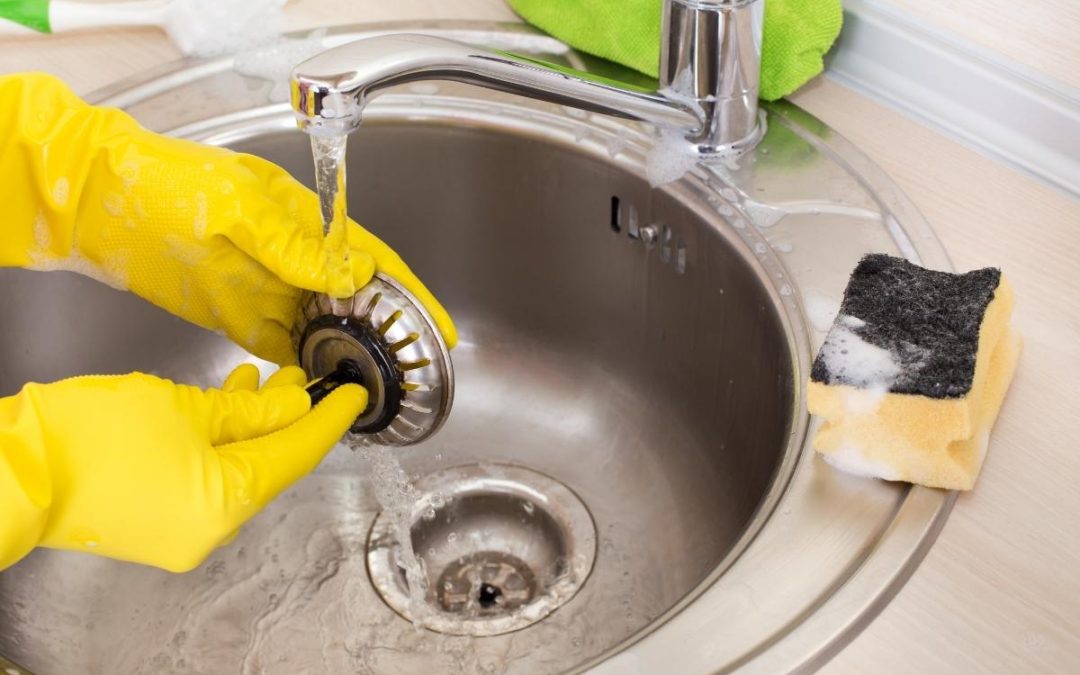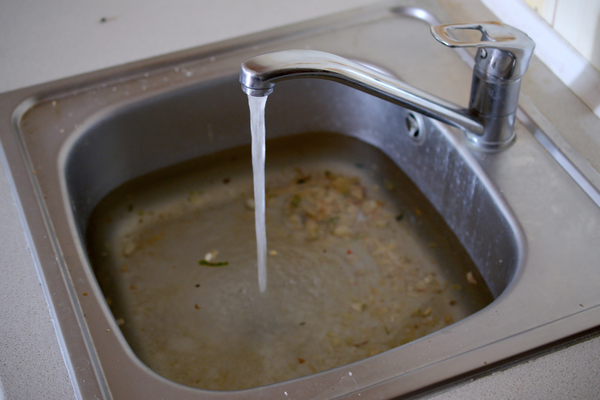Reliable Tips For Correcting A Slow-Draining Sink
Reliable Tips For Correcting A Slow-Draining Sink
Blog Article
Were you interested in critical information concerning Solved! How to Fix a Slow Sink Drain?

Intro
We have actually all been there: You're brushing your teeth or cleaning your hands, and you see the water merging in the sink. As opposed to promptly swirling away, it lingers, transforming your once-refreshing early morning routine into a miniature overload scene. A slow-draining sink isn't just aggravating; it's commonly an indication of larger pipes issues prowling underneath the surface. The bright side is that a lot of slow-draining sinks can be fixed with a little knowledge, a few fundamental devices, and some persistence. Ready to tackle this job head-on? Allow's roll up our sleeves and dive right in.
Comprehending the Causes of a Slow-Draining Sink
Prior to you begin poking around in your pipes, it assists to understand what could be causing the downturn. Recognizing the source makes it easier to pick the ideal fix.
Usual Wrongdoers Behind Slow Water Drainage
So, what's clogging points up? Normally, it's a combination of day-to-day debris-- believe hair, soap residue, toothpaste deposit, and leftover food fragments. With time, these little bits collect and hold on to the pipeline walls, slowly narrowing the flow and making it harder for water to go through. Sometimes, natural resource from tough water can also add to the crud, producing the ideal tornado for persistent clogs.
When is it Time to Do Something About It?
If you observe the water draining slower than common, it's a good concept to intervene sooner as opposed to later. Waiting also long can result in finish blockages, unpleasant smells, or even pipeline damage. If the water takes greater than a few seconds to clean out after switching off the faucet, consider it a warning and prepare yourself to put on your do it yourself hat.
Devices and Products You'll Require
The right tools make all the difference. Luckily, you won't require a totally equipped plumbing's van to do the job.
Crucial Tools for Do It Yourself Repairs
A bettor is your go-to beginning factor. A small, sink-sized plunger develops suction that can displace minor obstructions. For even more consistent clogs, a drain snake (in some cases called a plumbing professional's auger) works wonders. A pair of handwear covers, a flashlight, and maybe a set of safety safety glasses are likewise handy.
Recommended Cleaning Solutions
Mild dish soap and hot water can assist break down oily build-up. A mix of cooking soda and vinegar is a reliable home remedy, and enzymatic cleansers offer an even more environmentally friendly strategy. Maintain chemical drain cleaners as a last resort, as they can be rough on your pipelines.
Safety First: Precautions and Prep work
Prior to you launch into unclogging mode, think of security. You're handling potentially unclean water and particles, so slip on a pair of handwear covers. If you're making use of chemical cleaners, guarantee the room is well-ventilated and adhere to the instructions on the label.
Protective Gear and Work Space Setup
Put down some old towels or cloths around the sink location to catch splashes. Clear away any things that could get in your way, like soap dispensers or toothbrush holders. Ensure you have good lights-- order a flashlight if required.
Step-by-Step Guide to Taking Care Of a Slow-Draining Sink
Currently, let's get into the nitty-gritty. This detailed procedure will lead you via basic techniques to recover your sink's drain.
Action 1: Eliminate and Clean the Stopper
Frequently, the stopper (that tiny plug you push down to obstruct water) is the initial perpetrator. Remove it thoroughly and wipe any hair or gunk caught around its base. Wash it thoroughly before putting it back in place.
Action 2: Make Use Of a Plunger to Dislodge Debris
Got that bettor prepared? Placement it over the drain and give it a couple of company pumps. The idea is to create suction that can loosen any clog. If you see little bits of debris floating up, you're on the right track.
Step 3: Attempt a Drain Serpent or Cord Hanger
If the plunger doesn't work, it's time to bring out the drain snake. Gently feed it right into the drainpipe and twist as you go. You may really feel some resistance-- that's likely the clog. Maintain twisting and pulling until you remove the obstruction. If you don't have a drain snake, a straightened cord hanger can operate in a pinch.
Step 4: Apply a DIY Drainpipe Cleanser
An all-natural cleaner made from cooking soda and vinegar can break down recurring grime. Put half a mug of cooking soda right into the drain, complied with by half a cup of vinegar. Let it fizz for about 15 minutes, then flush with warm water. This chemical reaction commonly does marvels for small obstructions.
Step 5: Reassemble and Test the Sink
Placed every little thing back together and run the faucet. Does the water now swirl away at a commendable rate? If yes, offer on your own a pat on the back. Otherwise, do not misery-- there are still a couple of even more tricks up your sleeve.
Alternative Techniques for Stubborn Clogs
Not all blockages are developed equivalent. If your sink still refuses to comply, think about these alternate options.
Sodium Bicarbonate and Vinegar Approach
We currently discussed this, yet it's worth noting again. This gentle, environmentally friendly method is much safer than chemical cleaners and usually fairly reliable.
Chemical Drain Cleansers
Enzyme-based cleansers make use of all-natural germs to absorb organic matter. They're a superb choice if you're looking to prevent harsh chemicals. Just bear in mind, they may take a bit longer to function their magic.
Chemical Drain Cleaning Company: Benefits And Drawbacks
Chemical cleaners can blow up through hard obstructions quick, yet they're not without drawbacks. They can produce warmth and fumes, damage pipelines if used excessively, and present ecological dangers. Utilize them moderately, and always follow the directions very carefully.
Safety Nets to Keep Your Sink Flowing
Prevention is the best treatment. By taking on a few straightforward practices, you can keep your sink from slowing down to begin with.
Normal Cleaning Up Practices
Clean down the sink basin and component area on a regular basis. Eliminate hair or food particles before they have a chance to wash down the drain.
Avoiding Dangerous Substances Away
Hesitate prior to disposing coffee premises, oil, or fibrous veggie scraps down the sink. These culprits cling to pipe wall surfaces, developing clogs in time.
Routine Upkeep Checks
Set up a fast month-to-month inspection. Run warm water via the sink for a couple of mins, taking note of the flow. If it seems sluggish, act fast prior to it comes to be a full-on obstruction.
When to Call a Specialist Plumber
Sometimes, no matter just how difficult you try, that clog simply won't move. That's when it's time to generate the pros.
Indications That Indicate an Extra Major Concern
If your sink drains gradually in spite of numerous attempts, or if you notice water backing up in other components (like your shower or toilet), you may have a much more major plumbing concern hiding much deeper in the system.
Stabilizing DIY Initiatives with Professional Help
While do it yourself can save you money and supply a sense of achievement, there's no embarassment in calling a specialist. A specialist plumbing professional can assess your entire plumbing configuration, making sure there's no underlying damages or lasting trouble that can cost you extra later on.
Contrasting Prices and Long-Term Solutions
Prior to choosing, take into consideration the big picture. An inexpensive, quick fix might solve the issue momentarily, yet buying a much more long-term option could save you cash and tension in the long run.
Considering the Costs of DIY vs. Expert Fixes
Do it yourself fixes frequently set you back bit greater than the price of a bettor or a bottle of baking soft drink. Professional solutions, on the other hand, included a price however might avoid repeated issues and pricey repairs later.
Purchasing Top Quality Fixtures and Upgrades
If your sink's design contributes to frequent obstructions, it could be worth upgrading to higher-quality fixtures or changing the plumbing design. Consider this a financial investment in your home's functionality and comfort.
Verdict
A slow-draining sink can seem like a small irritation, but it's commonly an indicator that your plumbing needs a little TLC. By understanding the root causes, using the right devices and methods, and committing to simple safety nets, you can maintain your sink streaming freely. And when all else stops working, never wait to employ an expert-- your home's plumbing deserves the investment in care and upkeep.
Three Common Ways to Fix a Slow Drain
Baking Soda Method
Boil a full pot of water. Measure out cup of baking soda and pour it down the drain. Then take cup of the magical cleansing substance known as white vinegar and drop that down there too. Allow the mixture to fizz in the drain for five minutes as the vinegar and baking soda combine. Now dump in that whole pot of boiling water. This combination of cleaning substances should clear out anything that is causing your sink to drain slowly. If it doesn t...
Zip-It
If the baking soda method doesn t clear out your drain, it may be because a significant amount of hair and/or other debris has collected there and you need to remove it. Purchase a Zip-It tool at any home improvement or hardware store and insert it into your drain. It will catch any collected hair or debris that s blocking the flow of water. Pull it out. If it s got a big clump of hair, etc. on the end, you ve probably got your culprit.
Drain Cleaner
If these methods don t work, there is the standard drain cleaner that you can also buy in a hardware store or even your local grocery store. It s better if you can use a household solution, but these drain cleaners often work in a pinch. They re very simple to use. You generally just dump them in your drain and wait. If even this method is not effective, it may be time to call the plumber.
https://www.mrrooter.com/oneida/about-us/blog/2017/july/three-common-ways-to-fix-a-slow-drain/

As a keen reader about 4 Tips to Fix a Slow Draining Sink, I imagined sharing that section was really helpful. If you please take the time to share this write-up if you enjoyed reading it. Thank-you for going through it.
Click Here Report this page